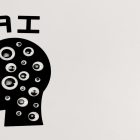What are the 4 types of AI? Understanding the Different Categories of Artificial Intelligence

4 types of AI – Artificial Intelligence (AI) is a rapidly advancing technology that is transforming the way we live and work. As AI becomes more prevalent, it is important to understand the different categories of AI and how they are being used today. In this article, we will explore the four types of AI, including their definitions, applications, and limitations.
Types of AI
Reactive Machines
Definition
Reactive machines are the simplest type of AI that reacts to specific situations without memory or the ability to learn. These machines can only respond to certain pre-programmed stimuli and cannot understand the context or environment in which they operate.
Applications
Reactive machines are widely used in manufacturing and automation systems, such as assembly line robots that perform repetitive tasks. They are also used in gaming, such as chess-playing machines.
Limitations
The limitations of reactive machines include their inability to learn or adapt to new situations, making them unsuitable for complex tasks that require decision-making or problem-solving abilities.
Limited Memory
Definition
Limited memory AI is a type of AI that can learn from previous experiences and make decisions based on that knowledge. These machines have a limited ability to remember and recall past events.
Applications
Limited memory AI is used in a variety of applications, such as self-driving cars that use past driving experiences to make decisions about how to navigate a route. They are also used in fraud detection systems that analyze past transactions to identify suspicious activity.
Limitations
The limitations of limited memory AI include their inability to understand the context of a situation beyond the data that they have been trained on. This can lead to inaccuracies and errors when making decisions in new or unfamiliar situations.
Theory of Mind
Definition
Theory of mind AI is a type of AI that has the ability to understand the mental states of other agents, such as humans or other machines. This type of AI can understand emotions, intentions, beliefs, and desires.
Applications
Theory of mind AI is still largely in the research phase, but it has potential applications in fields such as healthcare, where it could be used to better understand patient needs and preferences.
Limitations
The limitations of theory of mind AI include the complexity of programming and the potential for errors in interpreting the mental states of others. Additionally, this type of AI requires a vast amount of data to accurately understand human behavior and emotions.
Self-Aware
Definition
Self-aware AI is a type of AI that has consciousness and the ability to understand its own existence. This type of AI is purely theoretical at this point and does not yet exist.
Applications
Self-aware AI is still purely theoretical, so its potential applications are unknown.
Limitations
The limitations of self-aware AI are unknown since this type of AI does not yet exist.
Conclusion
As AI continues to develop, it is important to understand the different categories and their capabilities in order to make informed decisions about how AI can be used. The potential applications of AI are vast, but it is equally important to consider the limitations and ethical implications of using AI in various contexts.
Despite the limitations of current AI technologies, there is no doubt that AI will continue to transform our lives in profound ways. As technology advances, we can expect to see new applications of AI and the emergence of new categories of AI that may push the boundaries of what we thought was possible.
FAQs
What is AI?
AI stands for Artificial Intelligence, which refers to a type of computer technology that can perform tasks that typically require human intelligence, such as learning, decision-making, and problem-solving.
What are the four types of AI?
The four types of AI are reactive machines, limited memory, theory of mind, and self-aware.
What is the difference between limited memory AI and theory of mind AI?
Limited memory AI has the ability to learn from past experiences and make decisions based on that knowledge, while theory of mind AI has the ability to understand the mental states of others.
What are the potential applications of AI?
AI has potential applications in a wide range of fields, including healthcare, finance, transportation, and manufacturing.
What are the ethical implications of using AI?
There are a number of ethical considerations when using AI, including issues related to privacy, bias, and job displacement. It is important to carefully consider these implications when developing and using AI technologies.






















